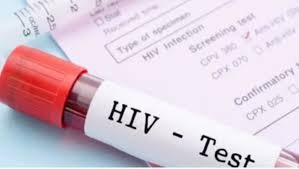Mizoram has long been battling India’s highest HIV prevalence rate, with a major portion of the affected population being young adults. Despite various awareness campaigns and testing initiatives, the stigma and logistical challenges associated with traditional HIV testing have hindered early diagnosis and treatment.
However, the introduction of HIV self-testing (HIVST) has emerged as a revolutionary tool in the state’s fight against HIV/AIDS. This innovative approach, endorsed by the Health Ministry, is helping individuals take charge of their health with privacy, convenience, and accessibility.
The Challenges of Traditional HIV Testing
The Health Ministry highlighted that the traditional methods of HIV testing—which required individuals to visit healthcare centers—have not been effective enough in addressing the growing crisis in Mizoram.
Some of the key challenges include:
✅ Social Stigma – Many individuals fear judgment and discrimination, preventing them from getting tested.
✅ Logistical Barriers – Remote locations and lack of easy access to testing centers hinder widespread testing.
✅ Delayed Diagnosis – Due to fear and inconvenience, many people avoid testing until symptoms appear, increasing transmission risks.
Given these barriers, a new approach was necessary—one that would empower individuals to test themselves privately and encourage early diagnosis and treatment.
How HIV Self-Testing Works?
HIV self-testing (HIVST) is a simple, private, and efficient method that allows individuals to check their HIV status from the comfort of their homes.
🔹 Easy-to-Use Kits – HIVST kits typically involve collecting a saliva or blood sample.
🔹 Quick Results – Results can be obtained within minutes.
🔹 Private & Confidential – No need to visit a healthcare center or disclose personal details.
This method has already been successfully implemented in several countries, majorly increasing HIV testing rates. Now, Mizoram’s adoption of HIV self-testing is seen as a turning point in the fight against AIDS.
Why HIV Self-Testing is a Game-Changer in Mizoram?
Mizoram has an alarmingly high HIV infection rate, far exceeding the national average. According to the Health Ministry, the primary modes of HIV transmission in the state are:
✅ Unprotected sex
✅ Intravenous drug use
Despite continuous awareness programs, many individuals hesitate to get tested, leading to delayed diagnosis and increased risk of transmission. HIV self-testing removes these barriers by providing a private, convenient, and stigma-free solution.
This approach is empowering people to take control of their health, making HIV testing more accessible than ever before.
Positive Impact of HIV Self-Testing in Mizoram
The implementation of HIV self-testing has sparked new hope in Mizoram’s fight against HIV/AIDS. Some of the key benefits observed include:
✅ Increased Testing Rates – More individuals are getting tested without fear of discrimination.
✅ Early Diagnosis & Treatment – Timely detection allows for better treatment outcomes and reduces transmission.
✅ Reduced Stigma – Since testing is done privately, social judgment is no longer a barrier.
✅ Better Access to Care – Individuals who test positive can seek medical care at an early stage, improving their quality of life.
The Future of HIV Prevention in Mizoram
While HIV self-testing is a major step forward, further efforts are needed to expand awareness and ensure accessibility. The government and health organizations are focusing on:
🔹 Making self-testing kits widely available at affordable prices
🔹 Integrating self-testing with existing HIV/AIDS prevention programs
🔹 Encouraging at-risk groups, including youth and drug users, to adopt self-testing
🔹 Providing counseling and follow-up support for those who test positive
With consistent awareness campaigns and increased access to self-testing, Mizoram has the potential to reduce HIV transmission rates majorly and move towards a healthier future.
The introduction of HIV self-testing in Mizoram has emerged as a game-changer in the fight against AIDS. By removing stigma, improving accessibility, and encouraging early diagnosis, this initiative is helping curb HIV transmission in the state.
With Mizoram still grappling with India’s highest HIV prevalence, continued efforts from the government, health agencies, and communities will be crucial in ensuring that self-testing becomes a widespread, life-saving practice.
As the adoption of HIV self-testing grows, Mizoram’s battle against HIV/AIDS is becoming more effective, bringing hope and change to thousands of lives.


